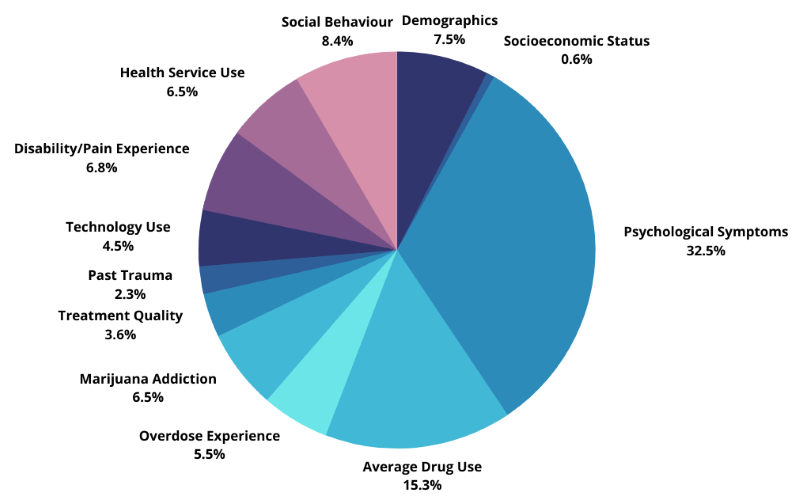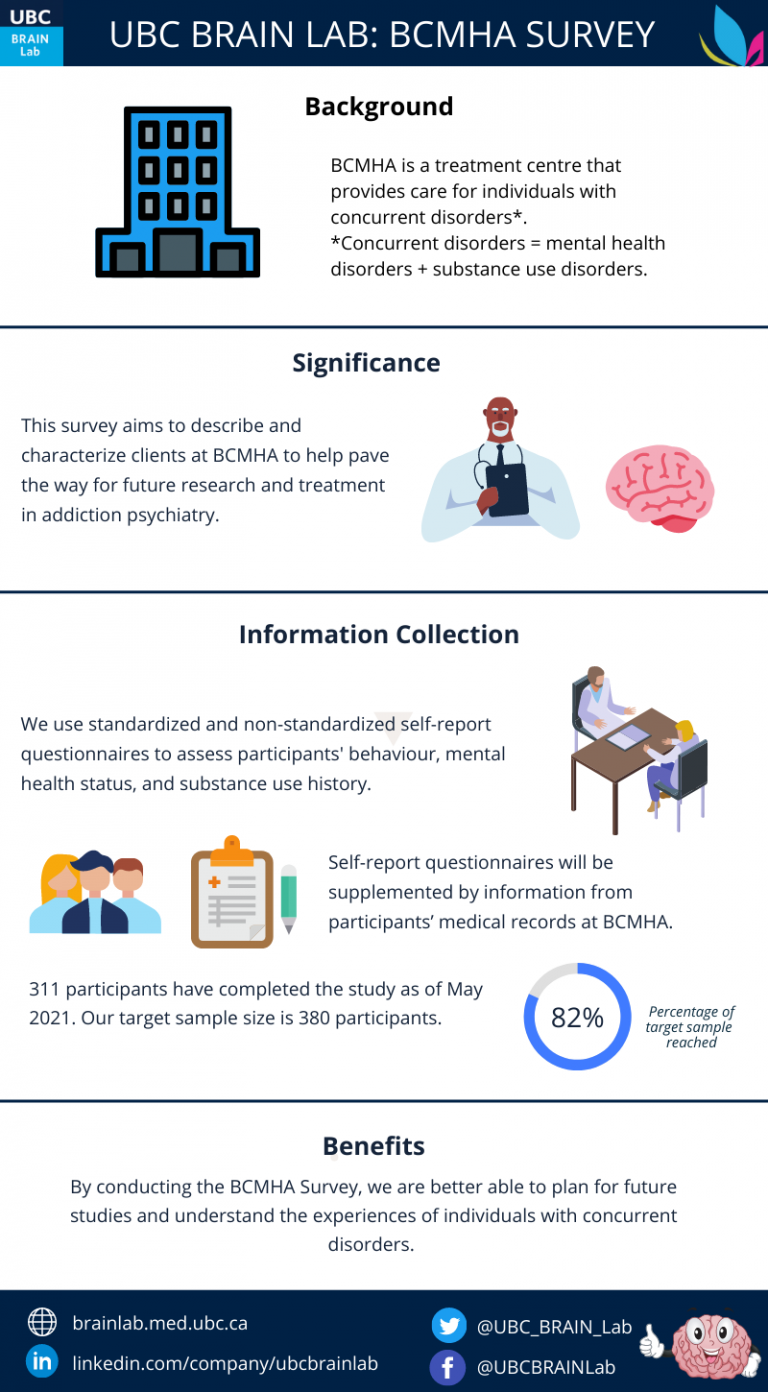By: Aarya Tamrakar & Kirsten Wesselow
Substance Use Treatment in British Columbia: Background
In 2020, reported deaths due to illicit drugs in British Columbia (BC) rose to 1,726 from 985 in 2019. The high levels of overdose and severe drug use issues indicates a need to develop an understanding of the factors leading to and factors which will help to improve the current situation. BC has a history of strong research and cutting-edge innovation, such as opening the world’s first methadone substitution program in 1959.
BCMHA Survey: What it is and why it’s important
Concurrent disorders (co-occurrence of mental health and substance use disorders) are the norm and not the exception in individuals suffering from substance use disorder, specifically severe substance use disorders. The BRAIN Lab focuses on understanding the complexity of multiple disorders. At the Burnaby Centre for Mental Health and Addiction (BCMHA) we are completing a pilot study, “The Cross-Sectional Assessment of Substance Use Disorder, Mental Health and Quality of Life in Diverse Clinical Settings (BCMHA Survey),” to gather detailed information on patients and determine the feasibility of integrating larger studies into clinical practice, such as ROAR CANADA. Integrated treatment centres like BCMHA offer combined treatment efforts for individuals with severe concurrent disorders. BCMHA is unique since it offers integrated care from the same practitioners in one setting and provides the full range of evidence-based mental health and substance use interventions in a coordinated manner, resulting in comprehensive consistent treatment and recovery.
A key aim of the BCMHA Survey is to describe and characterize clients at BCMHA and their trajectories to help pave the way for future research and treatment in addiction psychiatry. Data is already being used to inform planning for treatment infrastructures, such as the new Red Fish Healing Centre for Addiction and Mental Health that will be opening in Burnaby, BC.
How Are We Doing It?
Collecting reliable and relevant information on diverse aspects is a huge undertaking! So how do we do this?
We have selected standardized and novel self-report questionnaires for this study to assess participants’ behaviour, mental health, trauma history, substance use, use of health care services, and treatment outcomes. New questionnaires, such as the mobile phone technology survey (developed by Michael Krausz, one of our research partners), have been designed to examine the patients’ accessibility to new technologies (e.g. cell phones), which will help us assess the effectiveness of treatment interventions that require mobile devices.
These self-report questionnaires will then be supplemented by information from participants’ medical charts at BCMHA. Chart information includes socio-demographic data, clinical diagnoses, substance use and medication history, and cognitive function. Using a combination of participants’ subjective self-report data, as well as objective diagnoses, substance use histories, and outcomes, we can gain a holistic understanding of their experiences that will help us guide future studies and treatments.
The Bigger Picture
We currently have 311 participants that have completed the study and have a target sample size of 380 participants. The ability to successfully recruit participants will in itself offer valuable information on recruitment considerations for future studies.
By conducting the BCMHA Survey, we are better able to plan for future studies and understand the experiences of individuals with concurrent disorders. At the B.R.A.I.N. Lab, we aim to contribute to the research and treatment approaches that can make a meaningful impact. We are looking forward to sharing our results and implementing positive changes in the care provided to those who need it most.

Above is a pie chart showing what information we ask for on our survey.
